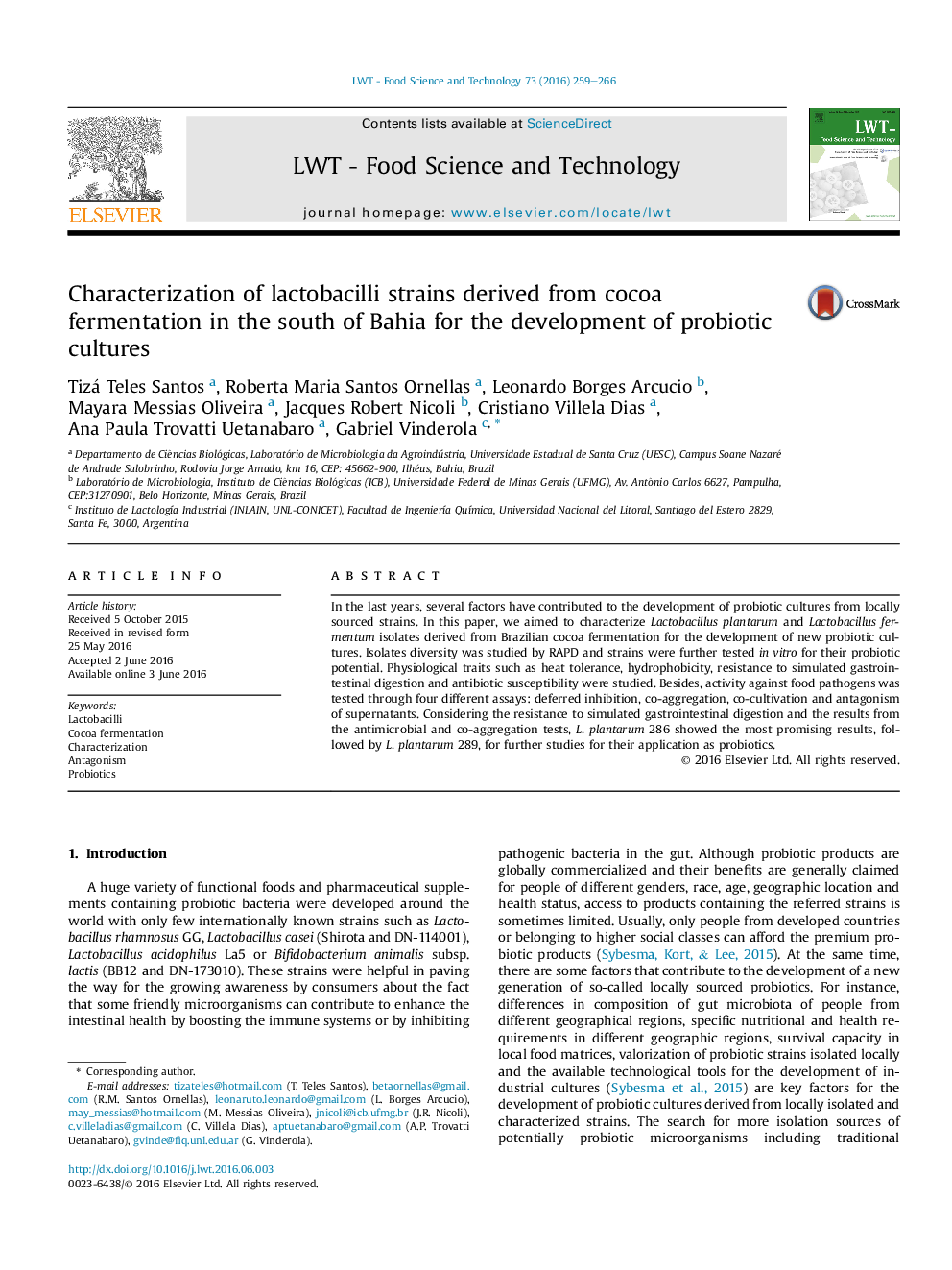| Article ID | Journal | Published Year | Pages | File Type |
|---|---|---|---|---|
| 4563358 | LWT - Food Science and Technology | 2016 | 8 Pages |
•Strains isolated from cocoa fermentation displayed low hydrophobicity.•Different antimicrobial tests showed diverse antimicrobial capacity of strain.•L. plantarum 286 showed the most promising results for further research.
In the last years, several factors have contributed to the development of probiotic cultures from locally sourced strains. In this paper, we aimed to characterize Lactobacillus plantarum and Lactobacillus fermentum isolates derived from Brazilian cocoa fermentation for the development of new probiotic cultures. Isolates diversity was studied by RAPD and strains were further tested in vitro for their probiotic potential. Physiological traits such as heat tolerance, hydrophobicity, resistance to simulated gastrointestinal digestion and antibiotic susceptibility were studied. Besides, activity against food pathogens was tested through four different assays: deferred inhibition, co-aggregation, co-cultivation and antagonism of supernatants. Considering the resistance to simulated gastrointestinal digestion and the results from the antimicrobial and co-aggregation tests, L. plantarum 286 showed the most promising results, followed by L. plantarum 289, for further studies for their application as probiotics.
